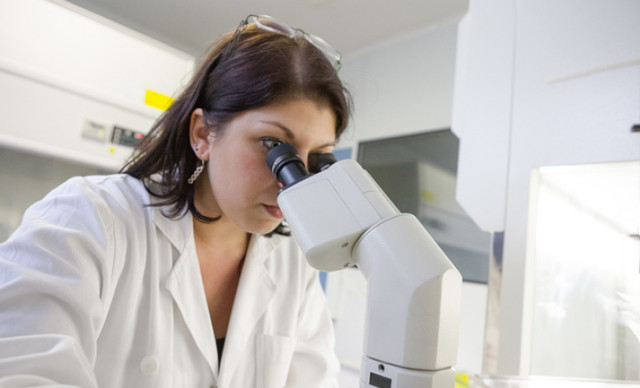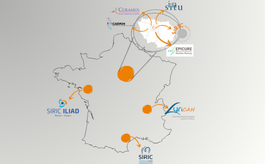Focus on relapse

Residual disease
The risk of relapse varies depending on the cancer and the patient. It can be detemined or more difficult to predict but disease recurrence is always associated with residual disease meaning tumor cells that persist at the end of treatment (at the initial tumor site or elsewhere). Current diagnostic techniques are not able to detect these cells.
A better understanding of these cells, why they persist, why some of them move in the body and why at a given moment they begin to proliferate again is essential to being able to definitively eradicate the disease. Better adjusting the treatments to reduce relapse risque, improve diagnostic techniques and the treatment of the disease when it does reappear are major challenges in cancer research.
Our strategy
Faced with these challenges, SIRIC-Curie multitdisciplinary teams are developing 3 research programs at 3 levels: from the cell to the person in their environment :
1. Cellular level : study of intrinsic mechanisms of recurrence
coordinated by Céline Vallot and Yves Allory
Given that genetic aspects of relapse have been the focal point of research over the past few years, we wanted to centre our 1st program on non genetic determinants of relapse. For this, we are studying the epigenome and the transcriptome but also transcription by targeting alternative splicing mechanisms and RNA modifications, translation or cell metabolism.
2. Tissular: study of extrinsic mechanisms of recurrence
coordinated by Hélène Salmon and Manuel Rodrigues
Program 2 aims to understand the dialogue between the tumor and its microenvironment. We characterise these tumor niches for difficult to treat or little studied pathologies. For more commn pathologies, we are studying cellular and molecular dialogue within tumor microenvironment with a specific focus on cancer associated fibroblasts, the immune system but also the microbiote or extracellular vesicles. We are studying the dynamic of treatment response of these niches in order to identify new biomarkers and new therapeutic targets.
3. Whole organism: prediction, detection and treatment of relapse
coordinated by Elisabetta Marangoni and François-Clément Bidard
Program 3 is mainly based on the development of relevant preclinical models (in vivo and in vitro) but also on the implementation of biomarkers in tumor samples and the validation of new immunotherapy approaches based on the discovery of specific cancer neo epitopes. The program also looks at relapse prediction and prevention but also patient quality of life faced with relapse.
Our strength: an integrated multi expertise approach
The strength of this program resides in the multidisciplinarity of the clinician/researcher teams. Their expertise, which extends from the most fundamental aspects (biology but also mathematics, physics, chemistry, etc.) to the most applied (clinical research, quality of life, artificial intelligence, etc.), is based on the care-research continuum so dear to Marie Curie. The first two programs are closely linked, due to the interconnection between cancer cells and their microenvironment. They share the same technologies (single or spatial cells) and use common analysis algorithms. The third program covers more clinical aspects. The involvement of SIRIC patient representatives at the very heart of this team allows us to position ourselves as closely as possible to the needs of patients and their loved ones.
This project is in line with the cancer control strategy carried out by the National Cancer Institute (INCa) for 2021-2030. The expected impacts concern in particular the improvement of relapse prevention, better consideration of tumor prognosis, new therapeutic approaches, a reduction in treatment-related after-effects and progress in terms of quality of life.

